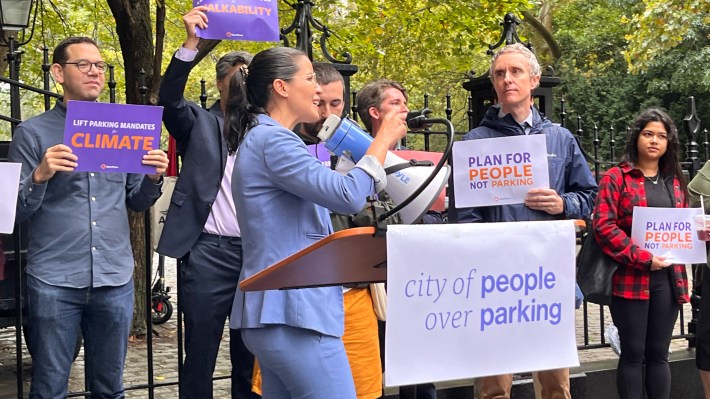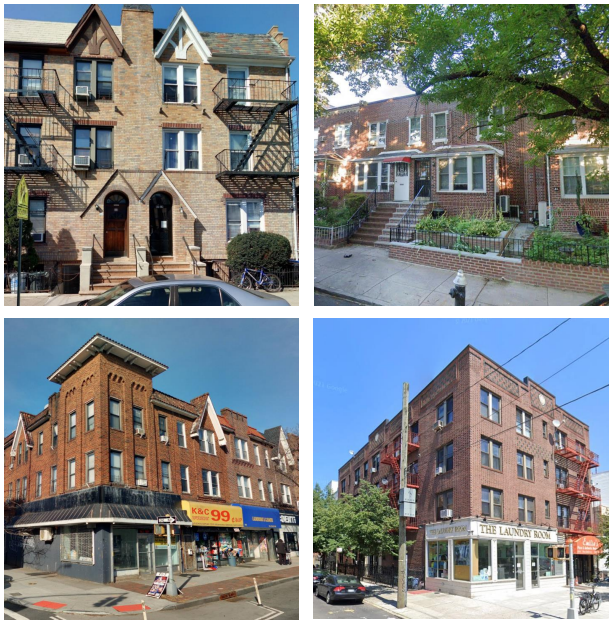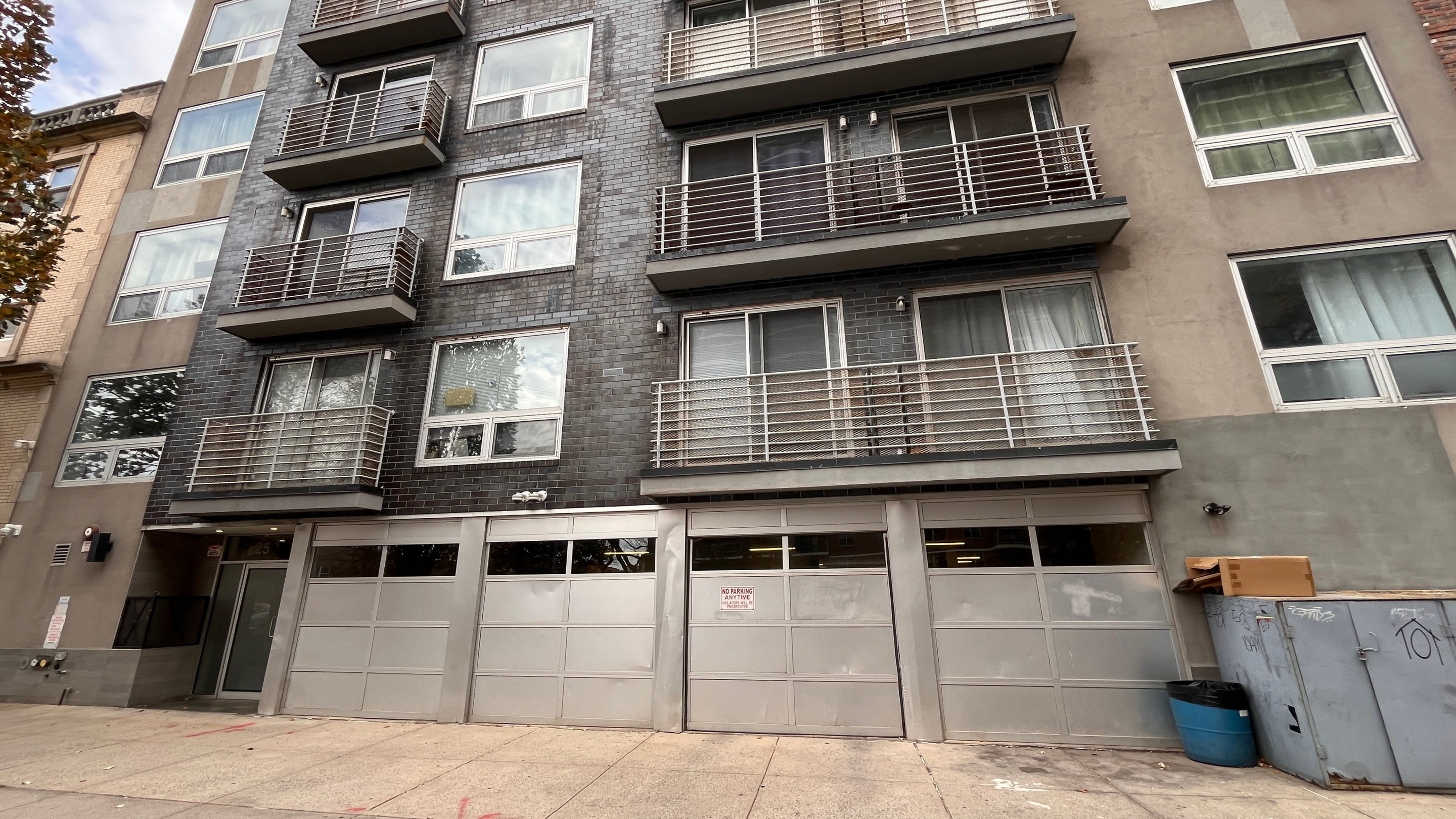It's time to make the sausage.
As two key City Council committees prepare to vote on Thursday on Mayor Adams's City of Yes for Housing Opportunity, the Council and the Adams administration are engaged in intense negotiations over the zoning initiative's key element — the elimination of costly parking mandates citywide — that could water it down to appease lawmakers from low-density districts that oppose the plan.
“This is the stage of the process where big ideas get filtered and turned into what the political system can stomach, and there is a lot being digested right now in real time,” said Howard Slatkin, the executive director of the Citizens Housing & Planning Council and a former City Planning official. “Even a pared-back version could still be a good meal, but the devil is in the details.”
Mayor Adams confirmed that “good healthy conversations" about the rezoning are occurring between his administration and the Council, but said he was confident he'd get a much-needed "W."
“I think we can land a plane on the City of Yes,” Hizzoner said at his weekly presser.
But the size of the victory depends, as it always does, on parking.
"The Council is unlikely to approve the total elimination of rules requiring off-street parking spaces with new housing due to concerns from members in more car-centric neighborhoods," Politico had reported earlier on Tuesday. "So they’re considering a tiered system where the rules would be lifted in certain parts of the city, while other areas would see reduced requirements."
Throughout the public review process, the proposal to eliminate residential parking minimums, which currently require developers to build costly off-street parking, has been the most contentious feature.
But experts are in agreement that eliminating mandatory parking is the key to unlocking the plan’s other ambitious features, like “accessory dwelling units” and “town center zoning.”
Removing parking mandates is popular with Council progressives such as Lincoln Restler, Carlina Rivera, Tiffany Cabán and Shahana Hanif, and with progressive groups like New York Communities for Change and the NYC-DSA. But Council members representing low-density districts have reportedly carried the day on rolling back the elimination of mandatory parking, which will result in a drastic reduction in the number of potential new units of housing.

And that's a bad thing, advocates said.
“Concerning the parking requirements ... there are modifications that the Council can make that might not seem to be large changes on the surface, but will have an outsized impact on the actual effectiveness of the proposal,” said Moses Gates, the vice president of housing and neighborhood planning at the Regional Plan Association.
The City Planning Department, which is overseeing City of Yes, has consistently referred to the rezoning as “modest.” The department sees the plan as made up of a series of common-sense fixes that would propel the city on a course towards building more affordable and market-rate housing.
The plan is so modest that it would only be a first step towards producing enough housing to make up for the city’s deficit, which regionally is estimated at around half a million units. If the city sticks to the status quo, that number could double in the next 10 years.
At its best, the City of Yes rezoning would add 109,000 additional units over the next 15 years, which is about one-quarter to one-third more housing than would be produced without any change. When the Regional Plan Association analyzed the needs of the New York City region in a report, The Affordability Squeeze, it found that in order to bridge the gap, there would need to be about a 200-percent increase in housing production.

“Even though the City of Yes proposal is a big deal, when you project housing needs into the future, there is still more work needed. I would hope that this is not perceived as, ‘OK, we’ve passed some version of City of Yes. We’re done. We don’t need to be talking about this for another decade or so,’” said Marcel Negret, the director of land use at the Regional Plan Association, who has authored multiple reports analyzing the plan’s possible outcomes. "More work still needs to be done because the scale of the need is so huge."
The plan as it was proposed, though modest, is historic. It would be the largest rezoning since the code was written by the Robert Moses-helmed Planning Department in 1961. To some experts, the fact that the Council could pass some version of it is a big deal and could have a major impact.
“Ten or even five years ago, this type of plan wouldn't have been in consideration,” said Gates. "There's been a lot of work to create the space for [City of Yes] to be talked about and to be voted on. I think it's the most impactful zoning change since the 1987 quality housing regulation package was passed, which was almost 40 years ago. It is a big deal."
But the plan’s central pillar – removing parking mandates citywide – has consistently been questioned by politicians, even those who say they want more housing. Parking mandates, which were introduced in 1950 under Moses, directly affect housing production because they incentivize "under-building," or building fewer units then zoning allows because parking is expensive, costing on average over $60,000 per underground space.
Because many developers build fewer units in order to avoid triggering parking mandates, the housing scarcity grows and, as a result, so do rents. If the developer does build costly underground parking in areas where there isn't demand for it, the cost gets passed to renters (with or without cars), which also raises housing costs.
"If they pare back [removing parking mandates] things, it just means you get less housing. And the least expensive stuff to build is the most important stuff for us to figure out," said Slatkin.
The disconnect between claiming to want more housing, but opposing lifting mandates has been a central theme since the community board review process began in the spring. It was perhaps most clear when the city’s borough presidents issued their recommendations. Both Bronx BP Vanessa Gibson and Queens BP Donovan Richards “approved” the plan, but said they want to keep the city’s parking mandates intact in many places.
But experts warn that keeping parking minimums will leave the city in pretty much the same place it was before the rezoning. Some areas will be building housing, and some won’t.
“If [the area where parking mandates are removed] gets shrunken down then you’re not only diminishing the net number of units that will be built in the next 15 years or so, but you are also changing the distribution of that in a very substantial way. You’re not really enabling more growth in neighborhoods that haven’t done their fair share in the past few decades,” said Negret.
The City Council's committees will vote on Thursday at 11 a.m. For information, click here.






